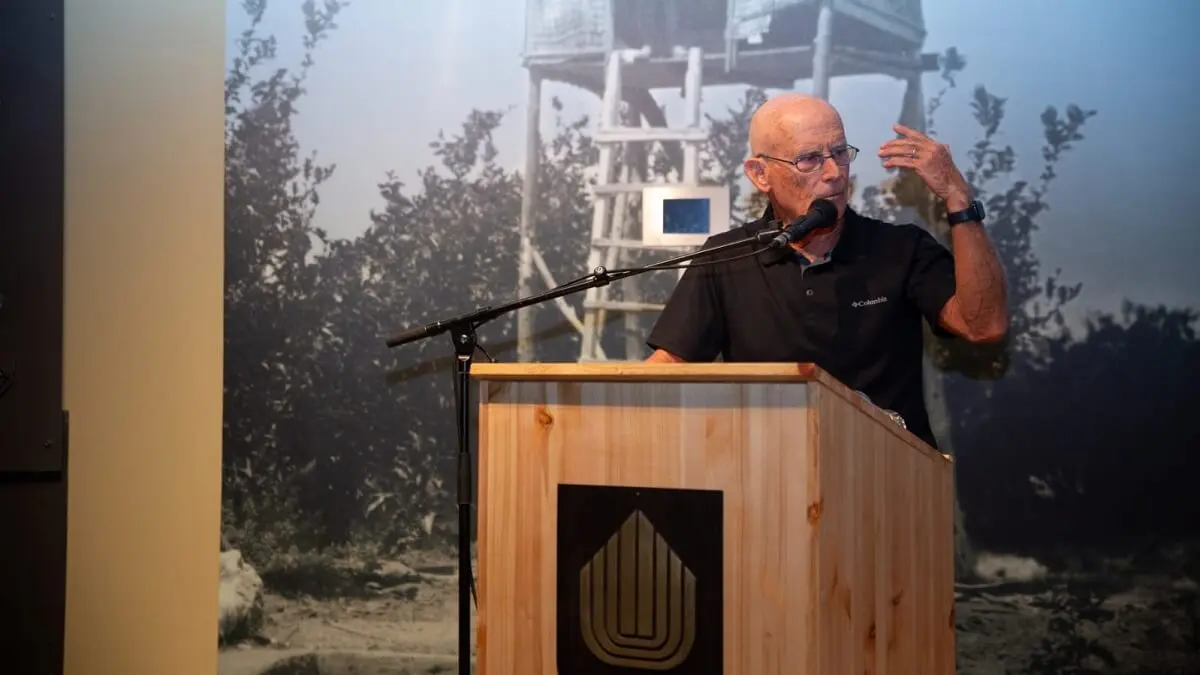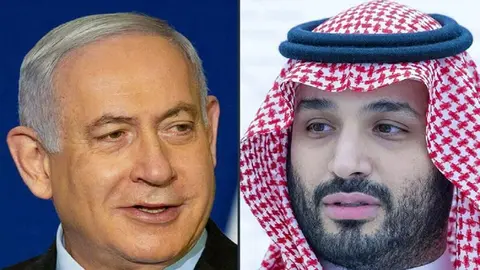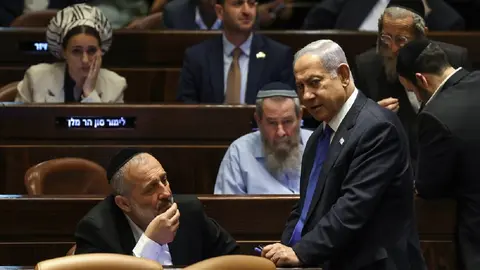If Israel loses its identity, what would its people fight for?

"I don't think we will end up in a civil war, but it is clear that we are going through a very serious internal crisis, undoubtedly the biggest since the establishment of the State of Israel. What is at stake is the preservation of our identity, that is, of our democracy as a core value. If we were to lose it, why should we go or send our children to fight, combat and even die in a war?" So says Ami Ayalon, the former head of the Israeli Navy and also the former head of the Internal Espionage Service, the Shin Bet, in an exclusive conversation with Atalayar.
Ayalon is one of the most determined supporters of the demonstrations that have been taking place for the past eight months in every city in the country against the reform of the judiciary advocated by Benjamin Netanyahu's government, which they interpret as an attack on one of the pillars of democracy, the unmistakable hallmark on which the State of Israel was founded.
We spoke by telephone after this ex-military officer, born in Tiberias in 1945, spoke at the Beit Hashomer Museum in Kfar Giladi on a day dedicated to the pioneers of Eretz Israel, and especially to Yosef Trumpeldor (1880-1920), the activist who organised the Jewish Legion corps and brought the first Jewish emigrants to Palestine. The day also had a Spanish flavour, with a performance by the dancer, creator and poet Ornili Azulay, whose dances fuse Jewish tradition with flamenco art to the music of compositions by Paco de Lucía and Manolo Sanlúcar. Like all Israelis, men and women, Ornili Azulay did her military service in the naval forces, whose Admiral Ami Ayalon often quoted Seneca as the stoic Cordovan faithful to his principles until death. It is she who prompted Ayalon's candid conversation with Atalayar.

What will happen to the demonstrations if the government finally succeeds in completing the judicial reform that significantly curtails the independence of the Supreme Court?
There will be an even greater crisis because one of the essential values of our democracy, which has always been associated with the creation of the State of Israel, the culmination of the shaping of our identity, will have disappeared.
Some have even evoked the danger of civil war.
I don't think we will go that far. We came very close during the turbulent creation of our state, but since then there has not been a situation of confrontation like the present one, with a notable increase in violence. We seem to be showing the world that we are not capable of living together.
Do you think that Jews living in the United States and Europe have the same perspective of gravity that you describe?
I don't have a global picture on this, although I know that major media such as CBS have dedicated monographic spaces to the issue, and even that, on the occasion of Rosh Hashanah (New Year) which begins on 5784 of our calendar, the American rabbi in New York, Angela Buchdahl, has called for not deserting the protests. And yes, it could be a turning point in the American Jewish community's understanding of the gravity of the crisis in Israel. As for Europe, beyond the institutional, I don't know what its citizens think, given that they make up a very diverse mosaic of countries.

And what about the Palestinian people in this crisis?
You would say they are the elephant in the room; I say they are the whale in the pool. We are not blind, but it is clear that they do not want to see. Some people dream of a Greater Israel and suddenly wake up and realise that there are other people who live and think differently. And violence breaks out, an experience that can only be learnt by suffering it and drawing consequences.
For example?
Well, now that it is 50 years since the Yom Kippur War, in which Israel lost 2,600 soldiers, it has been shown that Israel only made peace with Egypt after that experience. The Madrid and Oslo peace processes only came after the first intifada; the exit from Gaza after the second intifada. It is a sequence that leaves little room for doubt.
The solution then is the establishment of two states once and for all...
I don't see any other possible peace agreement that doesn't go through that. I believe that the Palestinians deserve to have their own land, which does not necessarily mean that we have our backs turned. But for it to work, we Jews would have to get used to the fact that Jews living in the future Palestinian state would be a minority. With every right to demand respect and protection from the majority, just as Palestinians living in the State of Israel could do. The violence that Palestinians have unleashed against Jewish citizens is caused so much by the fact that, in addition to probably not having the best leadership, they are immersed in complete hopelessness and a feeling of living in an "apartheid" situation.

Has the traditional unity between the people of Israel and its army disappeared?
I don't think so, but I do think that the armed forces are becoming increasingly volunteer-driven. This does not mean, however, that whether the military is conscripted or voluntary, the values of the past must prevail. Symbols are fundamental and decisive here because going to war oneself or sending others to war requires the immense inner strength that comes from the conviction that one is fighting for something and someone who deserves even the sacrifice of losing one's life. So I come back to the same point: if we lose our identity, why should we fight and die?
But the truth is that Israeli society appears to be very divided.
I believe that more and more Israelis are ready to regain unity, to avoid violence and, of course, not to come to a civil confrontation. We all dream of a better future and a land on which to build it. The point is that everyone must understand the dreams of others.
The New Year holidays and the commemoration of Yom Kippur mark a time of forgiveness in Israel. On the latter holiday the country is plunged into total and eerie silence. A time of reflection and resolutions to work for a better life in Israel... and in Palestine.



